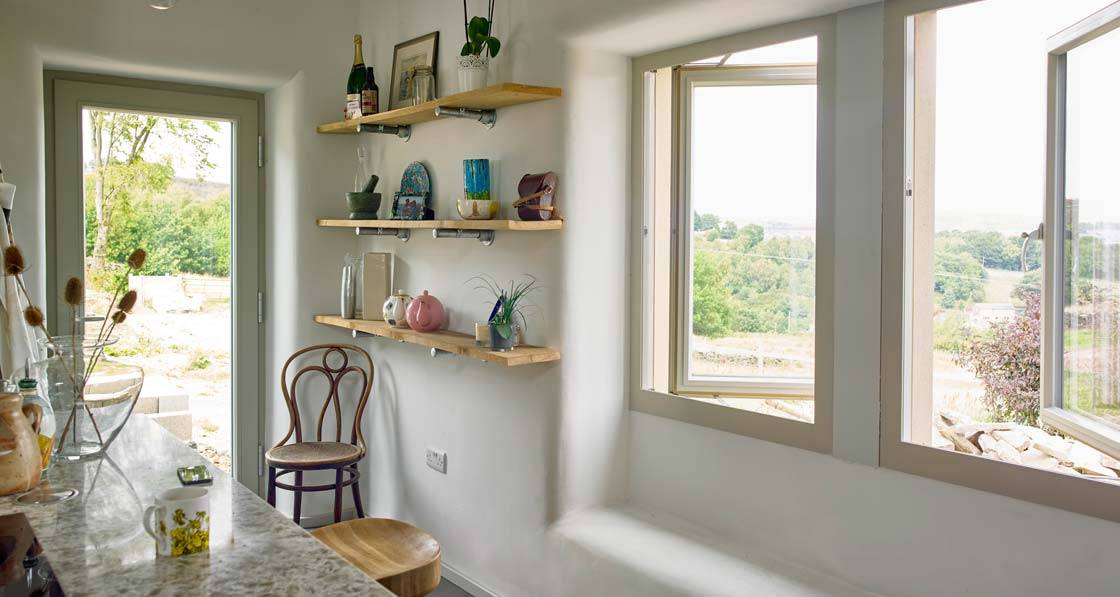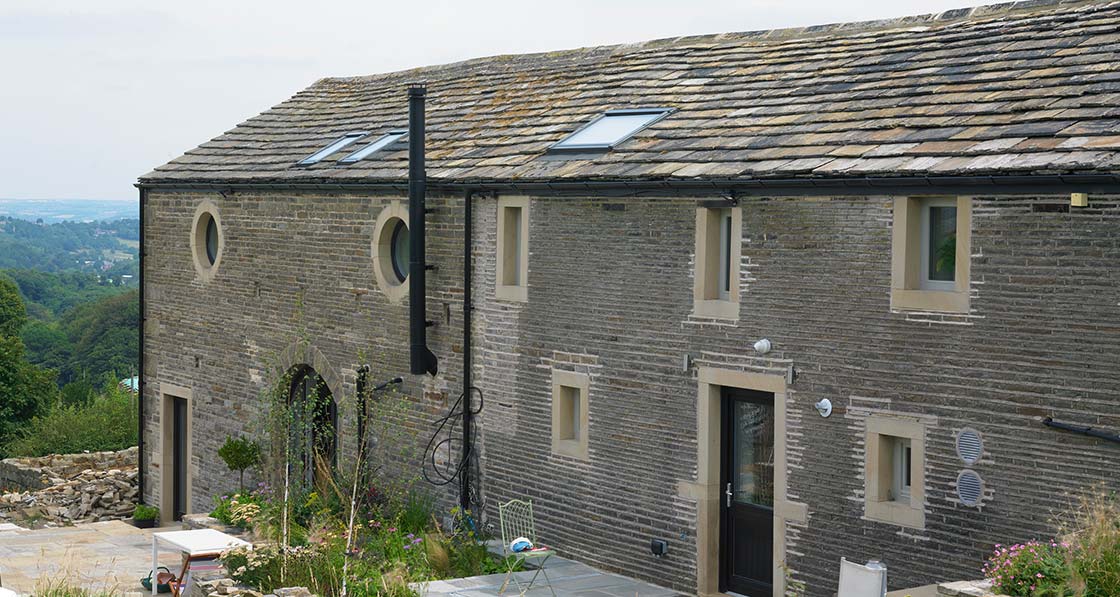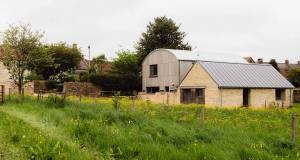
- Marketplace
- Posted
Green Building Store publishes radical retrofit briefing
Green Building Store has published a free technical briefing on its award-winning radical retrofit of a traditional Pennine farmhouse & barn in West Yorkshire, which developed innovative solutions for hard-to treat buildings with solid walls.
This article was originally published in issue 29 of Passive House Plus magazine. Want immediate access to all back issues and exclusive extra content? Click here to subscribe for as little as €10, or click here to receive the next issue free of charge
The Lower Royd retrofit was modelled using the Passive House Planning Package (PHPP) to develop a whole-house strategy, and the project utilised the passive house methodology to achieve optimal energy efficiency and comfort. It involved the innovative use of a cork-based internal wall insulation (IWI) that was vapour open and ‘breathable’ but also had good thermal performance (with a lambda value of 0.045 W/mK), and helped to deliver a wall U-value of around 0.36.
The Diathonite internal wall insulation (IWI) is composed of cork, clay, lime and diatomaceous earth. It was ideal for uneven walls of the traditional stone-built farmhouse and barn, and was spray-applied to a thickness of 100mm, a depth previously not trialled for Diathonite IWI.
The project won the ‘Vision & Sustainability’ award at Leeds Beckett University’s RISE 2017 Awards. It represents a development in Green Building Store’s understanding of the ‘whole house’ radical retrofit and approaches to minimising moisture risk when using IWI.
The project is helping to inform other radical retrofits with ongoing academic research now being undertaken.

The capillary and vapour open nature of the IWI insulation was important to help manage moisture risk at the project. The combination of cold solid walls, high exposure, driving Pennine rain and the potential for interstitial condensation meant that any IWI system used had to be extremely robust in its ability to deal with moisture and inhibit the risk of mould growth. Diathonite can absorb large amounts of water and let it out again without damage. It is also alkaline, meaning that mould growth is inhibited.
The technical briefing, aimed at self-builders and building professionals, details the measures undertaken as well as examining both the pros and cons of these approaches, and the challenges encountered by the project.
Bill Butcher, director of Green Building Store, commented: “There were issues with the drying out time at the project, and with detailing for airtightness. There will be pros and cons of any solution, but we need a range of solutions for this challenging level of retrofit. Our work on this project has demonstrated that Diathonite can offer a potentially viable solution, and we would certainly consider using it again at this thickness in a similar situation.”
The briefing can be downloaded at www.greenbuildingstore.co.uk/lower-royd/.




